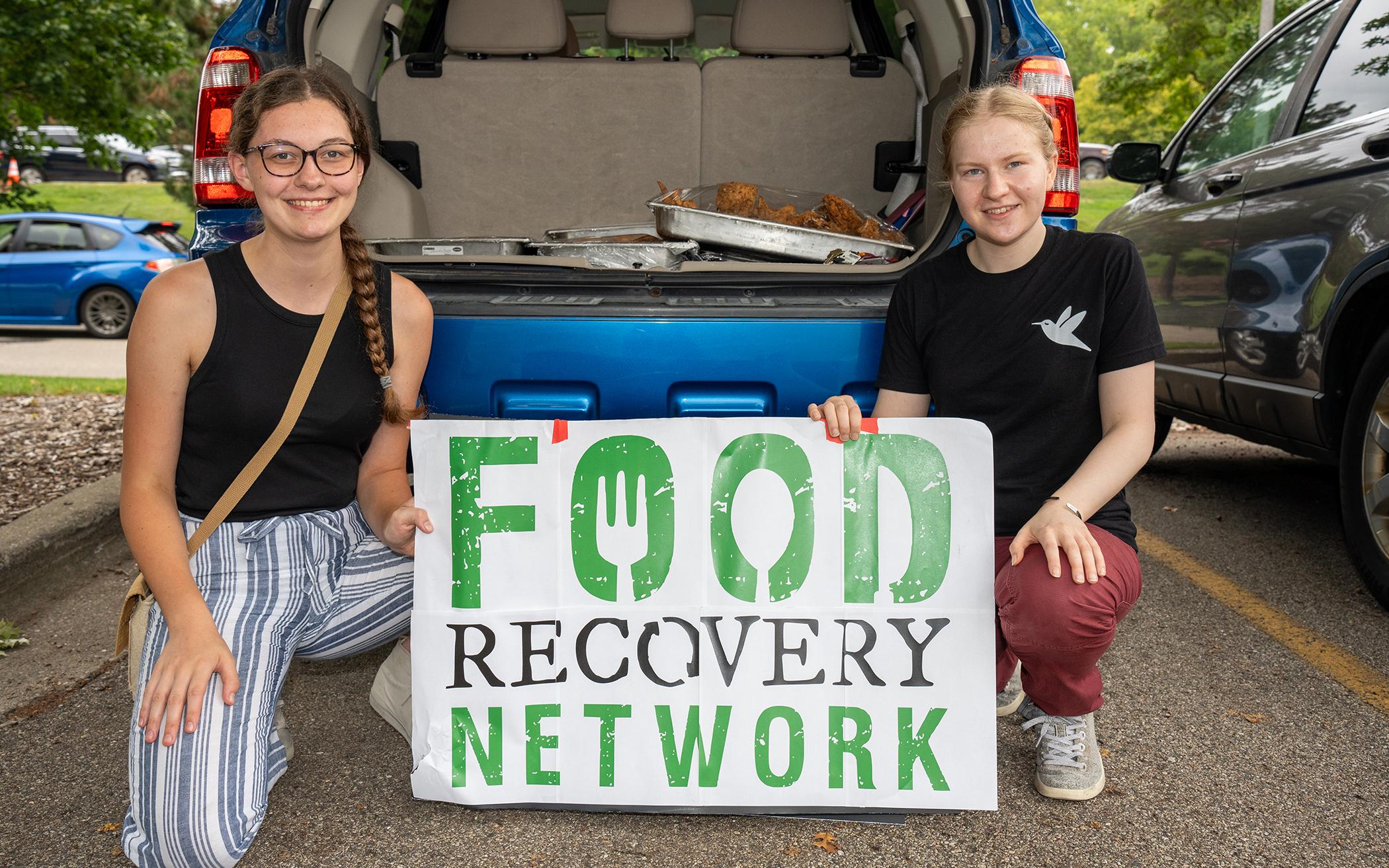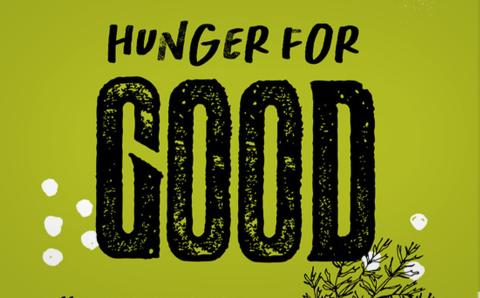Katarina Woldt feels a bit sad when she sees a half-eaten plate of food on the Calvin University dining hall conveyor belt, heading for the garbage can. She knows that if that student had just taken less food, it might have made its way to a local ministry or homeless shelter instead of ending up in the trash. The tragedy of food waste is what motivated Woldt to join and help lead the university’s local chapter of the Food Recovery Network several years ago.
“You can always go back for seconds,” the Calvin senior reflected. “Energy went into making that food, and it pains me to see it wasted.”
Woldt is one of about 20 students involved in the Food Recovery Network, a national organization of college students across 190 campuses in 48 states devoted to reducing food waste and ensuring all people have access to nutritious food. The student-led operation, which began at Calvin in 2014, partners with various ministries around Grand Rapids to deliver unused food otherwise slated for a landfill to local food banks and homeless shelters. The student volunteers collaborate with the head chefs from the university’s dining halls to collect leftover food and distribute it to those in need.
All food collected is high quality; it just didn’t get served that day or couldn’t be incorporated into another meal. Leftover food is temperature-checked to make sure it’s safe, then packaged into smaller containers and taken to partner organizations.
“The food we’re giving away is great food that any student would eat,” Woldt said.
To Woldt, the Bible is clear that food is important to God. Woven into the pages of Scripture are metaphors of food and drink. Jesus calls himself “the bread of life” in John 6:35 and talks about “living water” in John 7:37. David admonishes readers to “taste and see” that the Lord is good (Psalm 34:8). And across the gospels Jesus actively feeds people. He breaks bread with his disciples, turns water into wine, and performs the miracle of the fish and the loaves, an act that provided food for thousands of hungry men and women.
“Practically speaking, Jesus gave food to people,” Woldt said, “and that’s what we’re trying to do.” Because food is important to God, it’s become important to the students at Calvin.
In the U.S. alone, more than 119 billion pounds (almost 54 billion kilograms) of food are wasted each year, according to the Food Recovery Network. These staggering statistics mean that nearly 40 percent of all food is thrown away, piling up in landfills and taking years, sometimes even decades, to decompose.
“One in eight people struggle with food insecurity,” Woldt noted. “That’s a huge number. It’s great to see how much good, nutritious food we’re giving away from the Calvin kitchens to try to help here in Grand Rapids.”
Effects of this ministry have been felt across campus. Since the group’s inception, many students have become more intentional about stewarding all resources well for the glory of God.
“From conserving food to conserving energy,” Woldt said, “students at Calvin are trying to be mindful of what we consume, making a difference where we can.”









